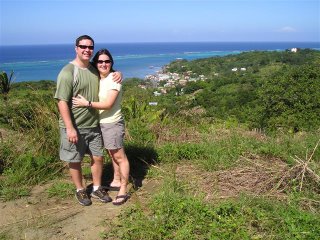Honduran Coup or just bad press you be the judge?
Here is the most accurate statement I have seen that explains what is going on in Honduras. Unfortunately it is not by the foreign press which seem to be playing only one side of the story the "Sensational Side".
In several of his interviews following his arrest and expulsion from Honduras, President Manuel Zelaya has portrayed himself as an innocent victim of a coup d'état (“golpe de estado”). His view has been amplified by foreign leaders such as President Hugo Chavez of Venezuela, Daniel Ortega of Nicaragua, and Rafael Correa of Ecuador.
The impression that this view has conveyed to the world is that the arrest by Honduran troops during the morning of June 28 signaled a dangerous return to the 1960s and 1970s when rogue generals such as Oswaldo López Arellano and Juan Alberto Melgar Castro regularly overthrew presidents by force and ruled Honduras through military juntas. This impression is inaccurate. Honduras’ armed forces have invested much time, effort and financial capital during the past three decades to reform itself and emerge as a professional and apolitical institution.
The decision to arrest and exile Mr. Zelaya was made by Honduras’ Supreme Court and backed by a Congress that is nearly unanimous in its opposition to Mr. Zelaya. The military, led by the head of the Joint Chiefs, General Romeo Vásquez Velásquez, moved against the president only after the Supreme Court, the Congress, the Attorney General, and the Commissioner for Human Rights determined that a series of political maneuvers by Mr. Zelaya were illegal under the country’s Constitution and had the potential to cause severe public unrest and lead to Mr. Zelaya trying to remain in office past his current four-year term. The Constitution of Honduras prohibits second terms for presidents.
General Vásquez was placed in the unenviable position of having to choose whether to be loyal to his Commander in Chief or to the Constitution, as interpreted by the Judiciary and Legislative branches of the government. Mr. Zelaya weakened his own credibility with the military by publicly sacking General Vásquez for refusing to support a legally questionable referendum that had been scheduled to begin the morning of his arrest. The dismissal of Vásquez led the heads of Honduras’ three services of the armed forces, as well as the civilian Minister of Defense, to resign in a show of solidarity.
The reality is that the Honduran military found itself in a no-win situation by a continually escalating conflict involving Honduras’ three branches of government. The inability of Honduras’ civilian political leaders to establish a civil dialogue on how to resolve their differences forced General Vásquez and his staff to choose their allegiance. Ultimately, the general opted for what he viewed as defending the Constitution. If there are any “victims” in this chapter of Honduran history, it is the armed forces, not the politicians.
Marco


0 Comments:
Post a Comment
<< Home